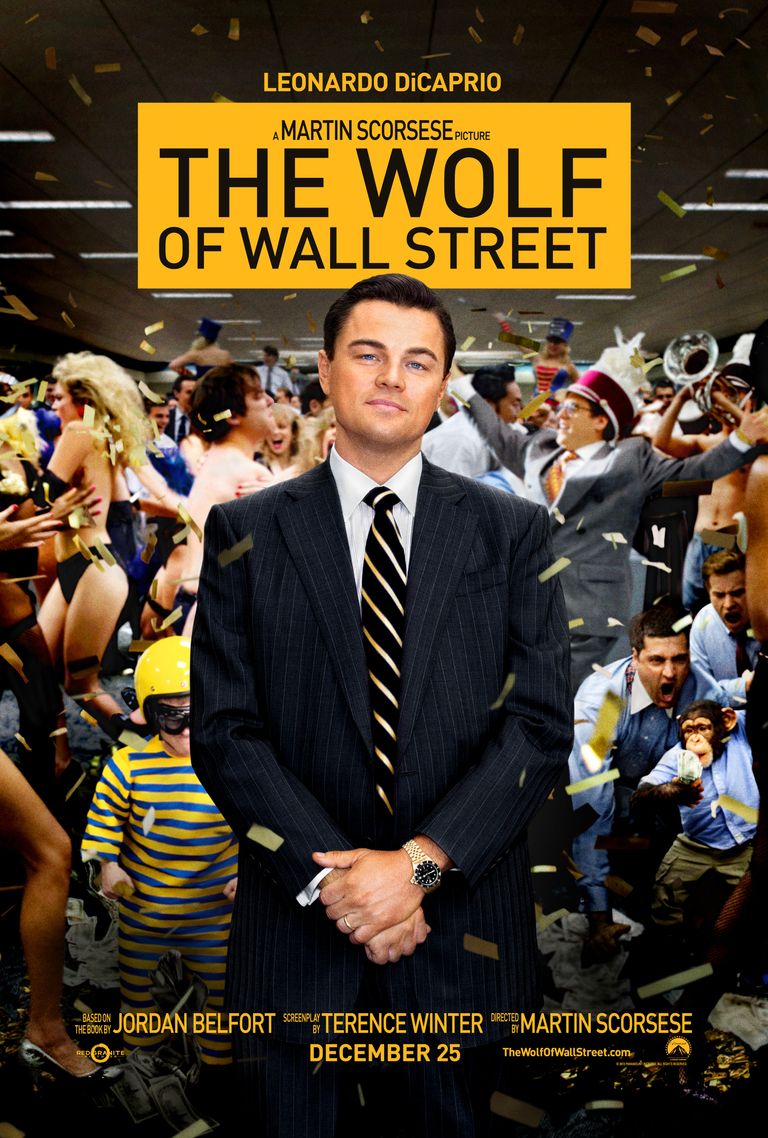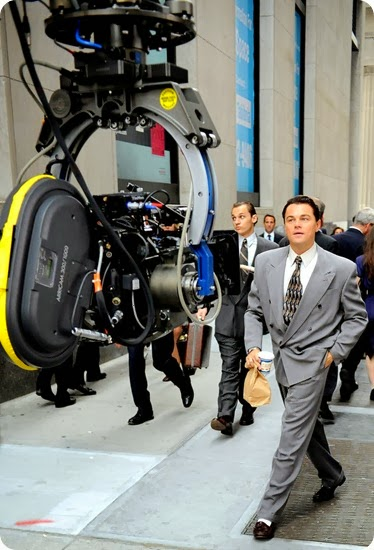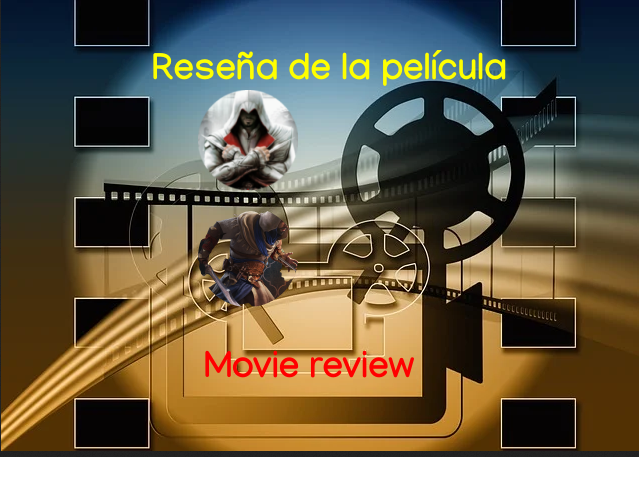
The Wolf of Wall Street according to Martin Scorsese : the great American director confirms himself as one of the most important authors of contemporary cinema with « The Wolf of Wall Street », the only unmissable title of an overall low-key weekend, starting from the disappointing « Last Vegas » by Jon Turteltaub.
For the fifth time in his career, Scorsese chooses Leonardo DiCaprio to star in one of his films: the actor plays Jordan Belfort, a greedy and fraudulent Long Island stockbroker who earned extraordinary sums of money in the 1990s before being indicted and ending up in prison for twenty-two months.

El Lobo de Wall Street según Martin Scorsese : el gran director americano se confirma como uno de los autores más importantes del cine contemporáneo con " El lobo de Wall Street ", único título ineludible de un fin de semana bastante tranquilo, empezando por la decepcionante "Last Vegas" de Jon Turteltaub.
Por quinta vez en su carrera, Scorsese elige a Leonardo DiCaprio como protagonista de una de sus películas: el actor interpreta a Jordan Belfort, un corredor codicioso y fraudulento de Long Island, que en los años 90 ganó sumas extraordinarias antes de ser acusado y acabar en la cárcel. prisión por veintidós meses.

The film chronicles his rise and fall, inspired by his autobiography of the same name.
Nominated for five Academy Awards (including Best Picture, Best Director and Best Actor), The Wolf of Wall Street is a merciless portrait of the United States of yesterday and today, willing to do anything to impose itself on others and "earn" money, drugs, women and success.
The film, which recalls several Scorsese titles from the 90s such as «Goodfellas» and «Casino», is striking for its frenetic pace – practically without drops, despite its 180-minute running time – and surprises with its comic side: «The Wolf of Wall Street» is in fact an extraordinarily funny film, as demonstrated by the irresistible sequence in which Belfort and his right-hand man Donnie Azoff are under the influence of Quaalude, a powerful drug with hypnotic and sedative action.
If the packaging is excellent, from the photography to the soundtrack, equally important are the performances of a cast in great shape: Leonardo DiCaprio, rightly over the top, gives one of the best performances of his career, but no less so are two splendid supporting actors like Jonah Hill, nominated for an Oscar as best supporting actor, and Matthew McConaughey, able to capture all the attention in the few minutes he is on stage.

La película narra su ascenso y declive, inspirándose en su autobiografía del mismo nombre.
Nominada a cinco premios Oscar (entre los que destacan las nominaciones a mejor película, mejor director y mejor actor protagonista), El Lobo de Wall Street es un retrato despiadado de los Estados Unidos de ayer y de hoy, dispuesto a todo para imponerse sobre los demás y "ganar" dinero, drogas, mujeres y éxito.
La película, que recuerda varios títulos de Scorsese de los años 1990, como "Goodfellas" y "Casino", sorprende por su ritmo frenético -prácticamente sin caídas, a pesar de sus 180 minutos de duración- y sorprende por su lado cómico: « El lobo de Wall Street" es de hecho una película extraordinariamente entretenida, como lo demuestra la irresistible secuencia en la que Belfort y su mano derecha Donnie Azoff están bajo los efectos de Quaalude, una poderosa droga con acción hipnótica y sedante.
Si el embalaje es excelente, desde la fotografía hasta la banda sonora, las actuaciones de un reparto en gran forma son igualmente relevantes: Leonardo DiCaprio, con razón, exagerado, ofrece una de las mejores interpretaciones de su carrera, pero no menos son dos espléndidas Actores secundarios como Jonah Hill, nominado al Oscar al mejor papel secundario, y Matthew McConaughey, capaz de catalizar toda la atención en los pocos minutos que está sobre el escenario.

Reconstructing the story of a real-life criminal may sound easy, but it is not. Sure, the script is pretty much already written, there is a beginning and an end, you don't have to invent characters and personalities as much, you just draw from reality and it seems to be done. Yes, but paradoxically this kind of process is much more complex than creating a fictional story from nothing. When the plot is invented, one can indulge oneself with situations, characters, settings, and no one will ever object to certain choices, but here it is different, here the blade is double-edged: on the one hand, one needs extreme skill in representing what has been, and on the other, a high (but not excessive) degree of creativity in ‘modifying’ and personalising the somatic traits of the story, so as to make it one's own and give it the right seasoning to make it palatable. One is therefore hovering on a thin thread, and one risks at any moment falling into banal repetitiveness (photocopier model) or into exaggerated fiction. Scorsese walks this tightrope, indeed, at times he even seems to run carefree, smoothly and without fear of the precipice that lies beneath. Di Caprio lends a big hand in that radiant race, giving a performance that verges on perfection and in some sequences perhaps even exceeds it, definitively putting the detractors who have always denied him the coveted statuette in Los Angeles against the wall.
The screening lasts three hours, but it could also be two or six, the viewer would not realise, as the whole thing slips by pleasantly, soaring over time and transporting us to the New York of twenty years ago. And here one can see Scorsese's hand more than ever, demonstrating for the umpteenth time his visceral bond with the Big Apple, with those high-rises in the shadow of which he took his first steps as a boy, among gangsters and wet pavements, where he cut his teeth observing (and subsequently narrating) the city as transparently as possible, without prejudice and without verdicts. And so characters like Travis Bickle (Taxi Driver) or Henry Hill (Goodfellas) come to the surface. There are those who swear that if New York had had big clubs like those in Las Vegas, the film Casino would certainly not have been shot in Nevada.
The narrative is bursting and the pace pressing from the very first bars, just as if the film were one of the many streaks of white powder that appear in the film. The viewer finds himself before it and cannot help but inhale it all ravenously, knowing that it will not disappoint.
Jordan Belfort is the undisputed ruler of a foul and rotten kingdom that preys on people's naivety, condemning (in a gentle and pandering manner) to slaughter all the poor people who come his way. Nothing so different from the gangsters who sow death and destruction, but here there are no guns and blood, there are only telephones and six-figure numbers, and the whole thing seems less cruel, even if it is not.
Some have described it as provocative and at times vulgar for its excessive references to sex, drugs and alcohol, but that, after all, is part of the transposition of the story, and to avoid telling certain anecdotes would have covered reality with a veil of hypocrisy, distorting the balance of the narrative in favour of an unnecessary and false moralism.
Then there is the criticism and controversy on the part of the associations of the people actually swindled by Belfort; these people may well be offended, of course, but in the end the film is certainly not an ode to his person or an incitement to imitate him. Watching the whole projection (especially the second half), how many would really want that life? Ask yourself the question and try to give yourself an answer. In any case, whatever answer you give yourself, know that Scorsese has already won, because, as with the other films, there are no judgments, morals or verdicts in this one: he has simply told you the facts, right or wrong.

Reconstruir la historia de un criminal de la vida real puede parecer fácil, pero no lo es. Claro, el guión ya está prácticamente escrito, hay un principio y un final, no hay que inventar tanto personajes y personalidades, sólo hay que partir de la realidad y parece que ya está hecho. Sí, pero paradójicamente este tipo de proceso es mucho más complejo que crear una historia de ficción a partir de la nada. Cuando la trama es inventada, uno puede permitirse situaciones, personajes, escenarios, y nunca nadie pondrá objeciones a ciertas elecciones, pero aquí es diferente, aquí la hoja es de doble filo: por un lado, se necesita una habilidad extrema para representar lo que ha sido, y por otro, un alto (pero no excesivo) grado de creatividad para «modificar» y personalizar los rasgos somáticos de la historia, para hacerla propia y darle el condimento adecuado para hacerla apetecible. Se pende, pues, de un delgado hilo, y se corre el riesgo de caer en cualquier momento en la repetitividad banal (modelo fotocopiadora) o en la ficción exagerada. Scorsese camina por esta cuerda floja, es más, a veces incluso parece correr despreocupado, con suavidad y sin miedo al precipicio que hay debajo. Di Caprio echa una gran mano en esa carrera radiante, ofreciendo una interpretación que roza la perfección y en algunas secuencias quizá incluso la supera, poniendo definitivamente contra la pared a los detractores que siempre le han negado la codiciada estatuilla en Los Ángeles.
La proyección dura tres horas, pero también podrían ser dos o seis, el espectador no se daría cuenta, ya que todo se desliza agradablemente, sobrevolando el tiempo y transportándonos al Nueva York de hace veinte años. Y aquí se nota más que nunca la mano de Scorsese, demostrando por enésima vez su vínculo visceral con la Gran Manzana, con esos rascacielos a cuya sombra dio sus primeros pasos de niño, entre gángsters y aceras mojadas, donde se curtió observando (y posteriormente narrando) la ciudad con la mayor transparencia posible, sin prejuicios y sin veredictos. Y así afloran personajes como Travis Bickle (Taxi Driver) o Henry Hill (Goodfellas). Hay quien jura que si Nueva York hubiera tenido grandes clubes como los de Las Vegas, la película Casino no se habría rodado en Nevada.
La narración estalla y el ritmo apremia desde los primeros compases, como si se tratara de una de las muchas vetas de polvo blanco que aparecen en la película. El espectador se encuentra ante ella y no puede evitar aspirarla con voracidad, sabiendo que no le defraudará.
Jordan Belfort es el soberano indiscutible de un reino asqueroso y podrido que se aprovecha de la ingenuidad de la gente, condenando (de forma suave y complaciente) a masacrar a todos los pobres que se cruzan en su camino. Nada tan diferente de los gángsters que siembran la muerte y la destrucción, pero aquí no hay pistolas ni sangre, sólo hay teléfonos y cifras de seis cifras, y todo el asunto parece menos cruel, aunque no lo sea.
Algunos la han calificado de provocadora y a veces vulgar por sus excesivas referencias al sexo, las drogas y el alcohol, pero eso, al fin y al cabo, forma parte de la transposición de la historia, y evitar contar ciertas anécdotas habría cubierto la realidad con un velo de hipocresía, distorsionando el equilibrio de la narración en favor de un innecesario y falso moralismo.
Luego están las críticas y polémicas por parte de las asociaciones de las personas realmente estafadas por Belfort; estas personas pueden sentirse ofendidas, por supuesto, pero al fin y al cabo la película no es desde luego una oda a su persona ni una incitación a imitarle. Viendo toda la proyección (especialmente la segunda mitad), ¿cuántos querrían realmente esa vida? Hágase la pregunta e intente darse una respuesta. En cualquier caso, sea cual sea la respuesta que se dé, sepa que Scorsese ya ha ganado, porque, como en las otras películas, en ésta no hay juicios, moralejas ni veredictos: simplemente le ha contado los hechos, acertados o no.

Leonardo DiCaprio: Jordan Belfort
Jonah Hill: Donnie Azoff
Margot Robbie: Naomi Lapaglia
Matthew McConaughey: Mark Hanna
Jean Dujardin: Jean-Jacques Saurel
Rob Reiner: "Mad" Max Belfort
Jon Favreau: Manny Riskin
Cristin Milioti: Teresa Petrillo
Jon Bernthal: Brad
Kyle Chandler: Patrick Denham



Sources / Fuentes:
Screenshots / Capturas de pantallas : IMDB.
Divider text / Separadores de texto: PNGtree
Final banner of the post / Banner final del post: Pixabay.
Links to my websites / Los enlaces de mis sitios web :

Upvoted. Thank You for sending some of your rewards to @null. Get more BLURT:
@ mariuszkarowski/how-to-get-automatic-upvote-from-my-accounts@ blurtbooster/blurt-booster-introduction-rules-and-guidelines-1699999662965@ nalexadre/blurt-nexus-creating-an-affiliate-account-1700008765859@ kryptodenno - win BLURT POWER delegationNote: This bot will not vote on AI-generated content
Thanks to everyone who participated in the curation of this content!!